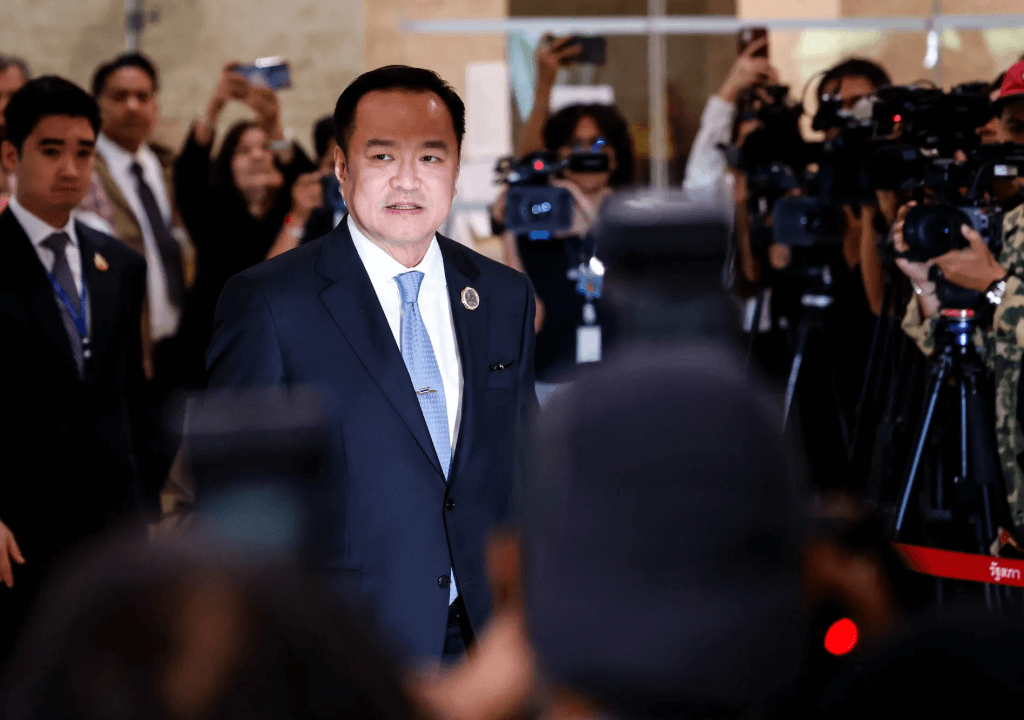For decades, Thai politics has moved in a cycle of turmoil, shaped by a deep state resistant to reform, the disqualification of popular politicians, the dissolution of major parties, toppled elections, and repeated courtroom interventions. Governments seldom complete their terms. Alliances form and collapse in quick succession, while the judiciary often steps in as the final arbiter of power.
The latest twist in this saga has brought the country yet another prime minister. This time, the position has gone to Anutin Charnvirakul, leader of the third-largest party and a staunch royalist and conservative. He secured support not only from royalist factions but, unexpectedly, from the pro-reform People’s Party. That backing came with a condition: new elections must be held within four months.
An Accidental Prime Minister
Anutin Charnvirakul, leader of the Bhumjaithai Party, is now Thailand’s 32nd prime minister. Although his party does not hold a parliamentary majority, he secured crucial backing from the People’s Party, which has the most seats, along with several smaller parties. In the parliamentary vote on Friday, September 5, he defeated Pheu Thai’s candidate, veteran lawyer Chaikasem Nitisiri, by 311 votes to 152.
Anutin’s rise was shaped by rulings from Thailand’s constitutional court. The country’s largest party, the People’s Party (formerly Move Forward), was barred from nominating a candidate after its only eligible nominee was disqualified. The same court also disqualified two prime ministers from the second-largest party, Thaksin Shinawatra’s Pheu Thai: Thaksin’s daughter, Paetongtarn Shinawatra, who was removed last week, and her predecessor, Srettha Thavisin, ousted a year earlier.
Anutin secured the support of People’s Party lawmakers through a deal in which he pledged to hold elections within four months and to consider a referendum on rewriting the constitution. Skepticism persists, given his record of both breaking and brokering political alliances. After the parliamentary vote, Anutin told reporters: “I will work my hardest, every day, no holidays, because there is not a lot of time.”
A Prime Minister with an Unusual Profile
Anutin Charnvirakul, 58, is a seasoned politician who has held several key cabinet positions, including deputy prime minister, interior minister, and health minister. The son of a former cabinet minister, he comes from a family that owns one of Thailand’s largest construction companies, responsible for building both Bangkok’s Suvarnabhumi Airport and the parliament building itself.
He rose to national attention as a strong advocate for cannabis legalization, overseeing the decriminalization process while serving as health minister. Beyond policy, Anutin has cultivated a distinctive public persona that resonates with both the media and the public. A licensed pilot, he has used his private jets to deliver organs for transplant patients. He is also a saxophonist and a street food enthusiast, often sharing glimpses of his life on social media, cooking fried rice in casual clothes, playing 1980s Thai pop on the saxophone, or singing karaoke.
Despite his approachable, everyman image, Anutin is a shrewd political operator. Under his leadership, Bhumjaithai, which means “Proud to Be Thai,” has emerged as the main conservative force in parliament. Analysts note that the party lacks a strong ideology beyond steadfast support for the monarchy. After the last election, Bhumjaithai helped block the pro-reform Move Forward Party, citing its attempts to amend Thailand’s strict lese majesty law, which carries a sentence of up to 15 years for criticizing the king.
Anutin has also received recognition from the palace, including the Chulachomklao Order, Second Class, and the Rattanaporn Medal, Third Class, making him the only civilian politician at the time to receive both honors.
The Fall of the Shinawatra Dynasty
Friday’s parliamentary vote marked another setback for the Shinawatra family, one of Thailand’s most influential and polarizing political dynasties. Just a week earlier, Paetongtarn Shinawatra was removed from office by the constitutional court over alleged ethical violations in her handling of a border dispute with Cambodia, becoming the fourth member of her family to be ousted before completing a term.
The ruling set off days of intense negotiations between rival parties, ultimately paving the way for Anutin’s rise to power. Thaksin Shinawatra, who returned to Thailand in 2023 after 15 years in self-imposed exile, the outcome highlights his waning influence. His controversial deal with conservative elites, once seen as a pragmatic compromise, has collapsed. Popularity has declined, supporters feel betrayed, and legal challenges continue to mount. Thaksin now faces the possibility of imprisonment while his political heirs struggle to maintain a foothold in power.
How Long Will Anutin Last?
Predicting the path of Thai politics is notoriously challenging. Few foresaw the swift fall of Paetongtarn Shinawatra, and now all eyes are on Anutin. Backed by the monarchy and broadly accepted by the military, he may encounter less resistance from traditional power centers. Rising tensions with Cambodia could also strengthen nationalist sentiment, giving him some political breathing space.
Still, his tenure comes with a clear condition: elections must be held within four months, along with a potential referendum on constitutional reforms. Whether he will honor this commitment remains uncertain. A delay or renegotiation could allow Anutin to extend his hold on power through political horse trading and shifting alliances. If he proceeds as promised, the vote may simply open another chapter in Thailand’s ongoing political drama.
For now, Anutin sits in the prime minister’s chair, but in Thailand’s turbulent political landscape, no position is ever truly secure.








